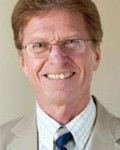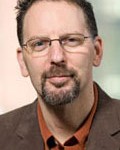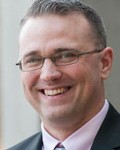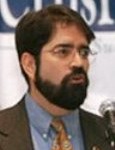
Clark University
Dean of
Admissions and
Financial Aid
Dozens of college advisers and guidance counselors from around the country will convene with a panel of distinguished academics and professionals for the Third Annual Counselor Symposium at Clark University, titled “Where Are the Men?” The symposium, on Sunday March 23 and Monday March 24, will focus on the growing gender gap between young men and women entering and completing college programs.
The prevalence of the gender gap on college campuses has undoubtedly impacted the landscape of both college counseling in secondary schools as well as the recruitment, admissions, and retention of young men in institutions of higher learning, according to Clark University Dean of Admissions and Financial Aid Don Honeman. The first day of the symposium will focus on an exchange of information, research, and anecdotal experiences to better understand the effect of gender differences on the approach to engaging college-bound students. Two keynote speakers will highlight the program:

Clark University
Professor of
Psychology
Nationally recognized Clark University psychology Professor Michael Addis will share his conclusions in a keynote address looking at how cultural understandings of masculinity affect young men’s well-being, including their social-emotional health, intellectual achievement, and physical condition — all of which are tied to men’s success in college. Jason Zelesky, Dean of Students at
Mount Wachusett Community College, brings to the program a 20-year student affairs background. He has worked alongside college students on issues of gender awareness, masculinity, sexual violence, hazing and substance abuse.
Honeman and associate professor of Community Development and Planning Ramon Borges-Mendez, along with a panel of students (men and women) will contribute perspectives and facilitate participatory sessions with symposium attendees. Presentations will be followed by practical discussions about how to positively impact the educational trajectory of young men.

Dean of
Students at
Mount
Wachusett
Community
College
These are among the questions that will be posed and explored at Clark University’s Third Annual Counselor Symposium:
- Why do women increasingly choose to attend college in larger percentages than their male counterparts?
- Are 18-year-old men as prepared, developmentally, for the academic and social collegiate environment as they should be?
- How can we explain the fact that men score higher on standardized tests but present weaker high school records in the college application process?
- Should more men consider a “gap year” before beginning their college experience?
- Why is the gender gap greater among minority students?
- Are there circumstances relating to the high school experience or family structure that favor women as college preparation unfolds during the teen age years?
- How does the actual college experience differ (if at all) for men compared to women?

Borges-Mendez,
Associate
Professor of
Community Development
and Planning,
Clark University
Monday’s program includes a session about Clark University’s pioneering model of education, LEEP (Liberal Education and Effective Practice), conversations with students, and a campus tour.
Each Clark University Counselor Symposium focuses on current issues facing those involved in the college admissions process, and examines the topic from the perspective of counselors at both the secondary and higher education levels. The 2013 symposium explored the college search process and finding the right fit, with a keynote talk by the director of Colleges That Change Lives. The first symposium in 2012featured Clark psychology research professor and author Jeffrey Jensen Arnett, who presented his extensive research on emerging adults and discussed with counselors the developmental challenges of college age and college-bound students.
More information, along with the schedule of events can be found at the Third Annual Counselor Symposium webpage.
Founded in 1887 in Worcester, Massachusetts, Clark University is a small, liberal arts-based research university addressing social and human imperatives on a global scale. Nationally renowned as a college that changes lives, Clark is emerging as a transformative force in higher education today. LEEP (Liberal Education and Effective Practice) is Clark’s pioneering model of education that combines a robust liberal arts curriculum with life-changing world and workplace experiences. Clark’s faculty and students work across boundaries to develop solutions to complex challenges in the natural sciences, psychology, geography, management, urban education, Holocaust and genocide studies, environmental studies, and international development and social change. The Clark educational experience embodies the University’s motto: Challenge convention. Change our world.


